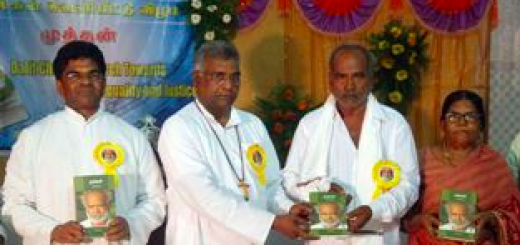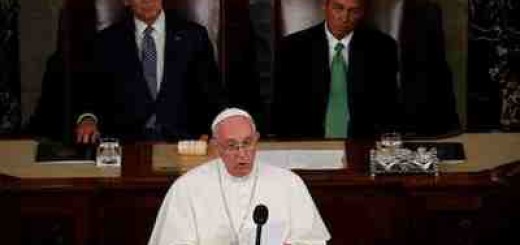What does it mean? Medium is the Message

February 25, 2018
(Note: It is important to know the world we live in. Are we masters of this world or its victims? The medium is the message "is a phrase coined by Marshall McLuhan meaning that the form of a medium embeds itself in any message it would transmit or convey, creating a symbiotic relationship by which the medium influences how the message is perceived.”
is important to know the world we live in. Are we masters of this world or its victims? The medium is the message "is a phrase coined by Marshall McLuhan meaning that the form of a medium embeds itself in any message it would transmit or convey, creating a symbiotic relationship by which the medium influences how the message is perceived.”
From our past mistakes we become wise and warn our children not to repeat our mistakes. Thus we tell our children that getting addicted to TV (Idiot box) they become idiots. But that advice also is half truth because, the right use of TV – seeing educative and exemplary episodes – make us well informed and in touch with latest happenings.
In good days (they were very bad times) the church forbad people to read the Bible, but think of the advent of the printed media making the Bible accessible to ordinary people, dominated by a clerical class that sacred things should be handled by self-styled sacred ignorant people (who were crooks par excellence) and the hell it created for the simple credulous faithful.
In the same way we today tell the young generation not to be fooled by the social media – internet,whatsApps, google smart phones etc. due to manifold misinformation they spread. This should not be done at the cost of ignoring the speed with which information is conveyed around the world.
Of course it is a terrible blow to the printed word and newspapers which need almost a week to reach the readers with the same content. Similarly the habit of reading books is almost disappearing because by the time a book is printed its content becomes stale and out of date. Change for the better is happening that fast.
Instant communication has reduced the vast universe into a global village, where the shouting of one at one end can be heard by the other on the other end. Instant communication flashes news (and news is not news if it is not new) happening on the other side of the globe before our eyes.
Only one has to make doubly sure that he/she does not gulp it down without tasting, that is, without questioning whether it is distorted, fake news or advertising to suit certain vested interest groups – political, religious groups or like the latest NiravModi and other Modies trying to loot the country, make a fast buck or cheat the unthinking Aamadmi.
So what is the alternative? It is education commensurate with which technological changes for the better are happening. One has to be very careful to blindly believe the instant news flashed across. One has to doubt, question and make sure of the veracity of news and views fashed across.
Devendra Saksena’s article below helps one to make this delicate judgment, much needed for the fast changing times that we live in. jameskottoor, editor, ccv.

We live in surreal times. Google and WhatsApp determine what we know, think or believe. Things have reached such ludicrous levels that many of us who have recently moved to a new location cannot reach their own home without the help of Google Maps and many of us cannot recall our own or our spouse’s telephone numbers.
Arguments are often settled with Google as judge; armed with Google knowledge, patients often suggest their own diagnosis and treatment to doctors. With more than one billion users, which is about one seventh of the human population, Google and WhatsApp influence the thought processes of most of the persons who have access to a smartphone.
There is no denying the fact that Google has put almost the entire sum total of human knowledge at our fingertips, but relying on Google to the extent of suspending our own intelligence and reason may prove counter-productive. Google often errs because as Sir Humphrey Appleby said in Yes Minister; you have to ask the right question to get the right answer.
One also has to take into account that along with genuine information all kinds of fake knowledge is floating around on Google ~ which is readily lapped up by unsuspecting users. One result of the instantly available gyan on the internet is that we find ersatz experts on diverse subjects with nothing to back them except Google wisdom. As Marshall McLuhan would have gleefully pointed out, the medium has become the message now.
What Google is to knowledge, WhatsApp is to opinion. Anyone with even a small number of acquaintances is bombarded with hundreds of WhatsApp messages and videos so much so that they soon fill up an average phone’s memory. Most of the messages are of the hello and good morning variety but quite a few are alarmist; some suggest outlandish theories, others hint at deep-rooted conspiracies. Words are often twisted, videos are doctored and opinions are attributed to non-existent but genuine sounding persons.
The same message is sent to you many times over from different sources hoping that in the best Goebbelsian tradition you would end up by believing it to be true. For example, despite eating noodles over the years without any ill-effect, many of us were convinced by a fraudulent video that the noodles we eat are never digested; again based on another widely circulated video the more gullible amongst us would even believe that the Chinese are flooding our markets with plastic cabbage and plastic rice.
Never mind that the price of plastic rice, if produced, would be many times the price of the natural variety and a business savvy country like China would never embark on such a misadventure. One can only marvel at the audacity and inventiveness of the authors of such messages which befool and misinform millions. Not all such messages are circulated with innocent motives; many are inspired by hate and revulsion towards a particular person, country or community.
Contrary to the general perception that the internet is a communication tool between individuals, a formidable array of experts manufactures the messages floating around on the social media. In addition to the professionals who invent new jokes and witticisms, political parties have formed cells to milk social media for all it is worth. While acknowledging the right of political parties to propagate their ideology and glorify their leaders, one does feel that they should stop short of maligning their opponents.
Most of the time, we find that an elaborate defamatory theory is constructed on the basis of half-truths and innuendos. Before the defamed person can clarify his position, the message is repeated millions of times by millions of users convincing everyone about the message’s genuineness. It is high time that the Election Commission steps in to stop this political skulduggery.
The one thing that stands out is the ability of WhatsApp and YouTube to entertain and titillate; they are the opiate of the new world. Every second person is now a smartphone addict; shunning face to face interaction for the anonymity of the internet.WhatsApp and YouTube have opened up new opportunities for some in the field of video content and advertising but a much larger number simply while away their time looking at a tantalising world which would always be out of their reach.
It would seem that a new generation has come up which looks at inanimate images on their phones for advice and intimation. One’s success and failure are now more often shared with online friends rather than real ones.Our parents predicted that cinema would cause the ruin of our generation, who in turn were supposed to be ruined by drama and vulgar literature, and the downfall of our next generation was predicted to be caused by television; in actuality none of these predictions came true. However, if the present trend of blind faith on Google and their ilk continues we may soon turn into zombies ~ doomed to be slaves to our smartphones for our thoughts, opinions and even our memories.
The inherent danger of this situation becomes apparent if we recollect events of the Iraq war of 1991 when the US caused the GPS and computers of the Iraq army to malfunction, which led to a rout of the Iraq Army. Similar manoeuvring of credulous minds by internet content providers can prove disastrous for the human race.
Even today, for commercial motives, the internet has invaded our privacy to the extent that internet applications are aware of our current location, our spending habits, our friends, political affiliations etc. It appears that we face a real and increasing challenge of preserving our human dignity, values and sensibilities while benefiting from the internet and its applications at the same time.
The only way to break the dominance of Google and its like is to educate the public about the right way to use the technology and applications available on the internet. Along with awareness campaigns on hygiene, consumer rights and so on, the Government should mount an awareness programme on the dangers lurking on the internet.
Perhaps, running such a campaign would be counter to the Government’s credo that technology rather than human capital has the solution to our problems, but reading the tea leaves, this awareness campaign needs to be run if not by the Government then by public spirited citizens.
The writer is a retired Principal Chief Commissioner of Income Tax.
















